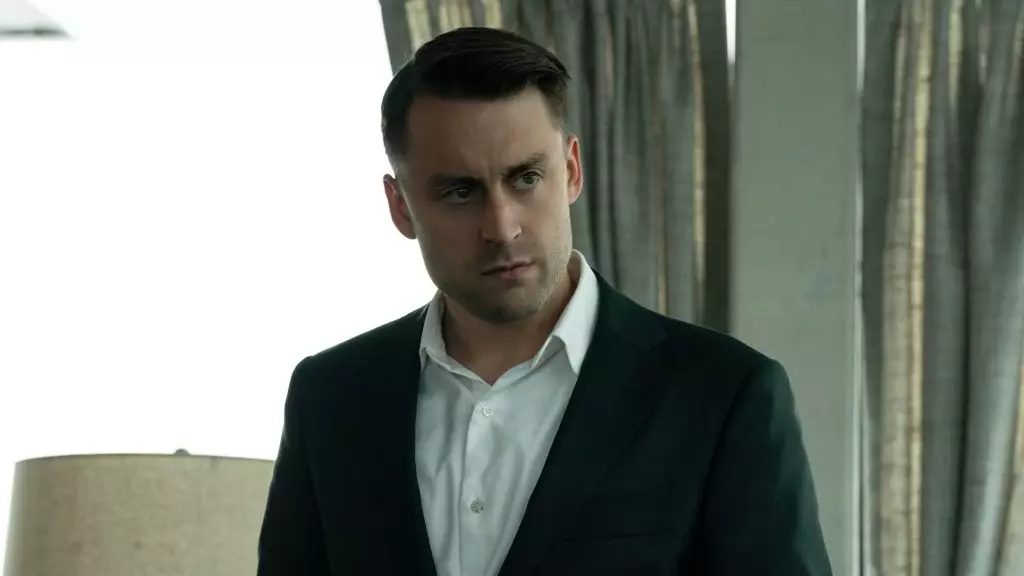Kieran Culkin, known for his nuanced performance as Roman Roy in HBO’s acclaimed series *Succession*, recently garnered his first Golden Globe for his work in the show’s final season. This acknowledgment, however, comes with a bittersweet undertone as Culkin finds himself disconnected from the significant culmination of the series. He publicly confessed to *The Late Show with Stephen Colbert* that despite the accolades, he has yet to witness the series finale that resonated with fans and critics alike.
Culkin’s absence from viewing the finale stems from his commitments abroad. During the closing episodes, he was in Poland filming *A Real Pain* alongside Jesse Eisenberg. The irony is striking: while his character’s narrative reached its apex, Culkin was occupied with another project, navigating through the challenges of both acting and access to his show. This dynamic raises questions on how artists cope with their creations even as they pursue new opportunities, especially in an industry that thrives on real-time engagement with content.
The Struggle for Connection
The whimsical anecdote surrounding Culkin’s efforts to catch up with the final episodes speaks volumes about the modern entertainment landscape. Stripped of access to platforms like Max in a foreign country, he turned to social media, with his wife amusingly appealing to strangers for login details. This interaction turned into an unexpected communal experience, showcasing how fans are often willing to bridge gaps to support their favorites. Yet, even with friends stepping in with passwords, Culkin’s attempts were thwarted when he relocated to a hotel lacking the necessary technology to stream the episodes.
The narrative reflects a broader theme: the artist’s relationship with their work can be complex and fragmented. Though he was physically distanced from *Succession’s* conclusion, Culkin still ingrained himself in the process—having read scripts and participated in discussions about the show’s direction—yet, it wasn’t quite the same. This distance creates a fascinating dissonance, highlighting how even in the age of digital access, the experience of viewing can be impeded by logistics.
Timing and Cultural Moments
Culkin’s sentiments reveal an important aspect of being in the creative industry—timing. As he expressed, missing the moment after the series ended left him feeling detached, as if he had faltered in fully participating in a cultural phenomenon that sparked discussions and debates across platforms. The “moment” often dictates collective experiencing, whether it’s the buzz of social media or the fervor of live viewings, and missing out can lead to a sense of dislocation from not only the narrative but also the communal experience it cultivates.
The world of television consumption has evolved, and while Culkin’s experience might seem unique, it echoes a struggle many artists face when pursuing their craft in unison with the demands of their personal or professional life. His reflections twist an appreciation for hard-earned accolades into a narrative about lost opportunities, creating a compelling portrait of the modern actor’s journey in a fast-paced, fragmented cultural landscape.


Leave a Reply